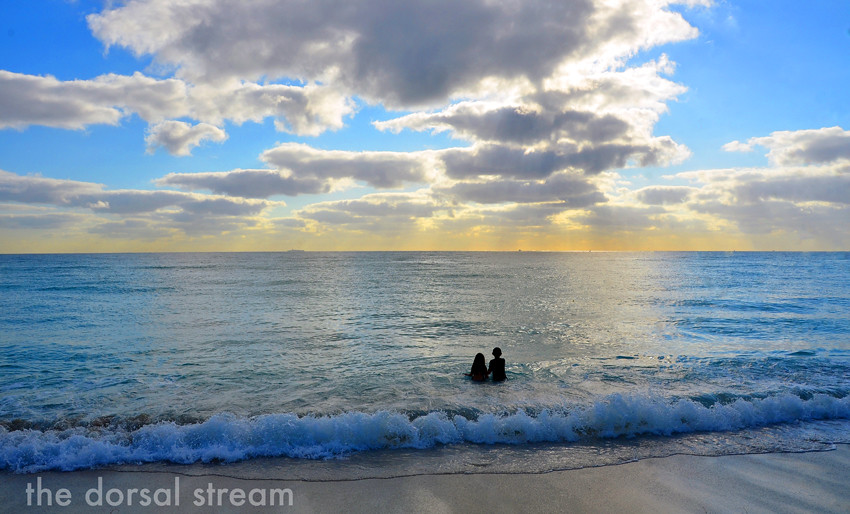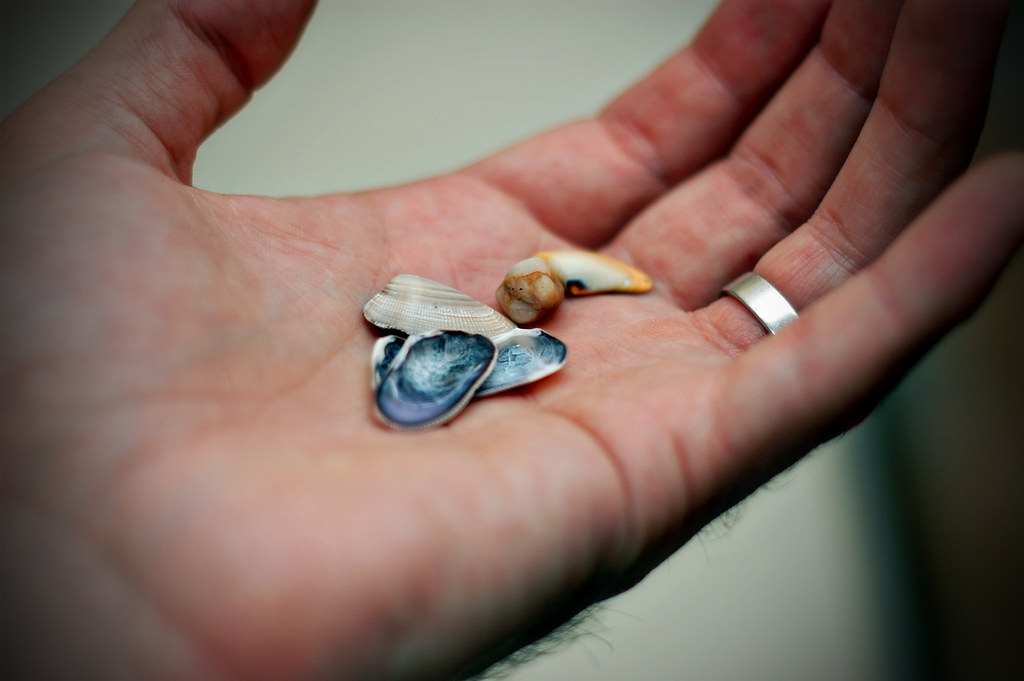I’m a hoarder of sorts, always have been, which means my coats end up being seasonal time capsules. When the weather shifts, I finally go through the pockets. I’m sure to find at least two grocery lists that will get me to thinking about the meals those ingredients became, and the lists themselves will likely be on the backs or folded sides of kid drawings depicting stick me doing wondrous things with my stick son and stick daughter. Usually I'll turn up a wrapper from a piece of Chinatown candy, something delicious with an unknown fruit printed on the foil, and maybe a back up train ticket for a commute I no longer make. Twice I came across kazoos.
Most of my pocket loot comes from my daughter Q. She finds beauty and meaning everywhere and then asks me to hold it for her. Walking in the park, she’ll spot a stick shaped just like a ‘Y’ and want to make a gift of it for her mother. Or there will be a chunk of asphalt, pleasingly shaped and flecked with some mysterious crystal (in all likelihood broken glass), that I will end up carrying around for a couple of days, me handling it like a totem in my pocketed fist until we both have forgotten enough about it. I hold on to this stuff longer than I need to, I suppose, because it’s a way of holding on to Q’s way of thinking about the world, her way of appreciating things. Simply putting my hand in a pocket takes me back to times spent with her at moments of discovery and the making of thoughts.
No one really knows how thinking about something actually succeeds — how a thought gets a hold of what that thought is about. It seems rather important to know how this works, since it’s the getting hold of things that makes for true and false beliefs and makes knowledge at all possible. It’s also what makes my thoughts about Q different from my thoughts about stones or justice or ‘Y’-shaped sticks.
For the curious and the philosophically inclined, the first part above has to do with the puzzle of representation and the other is about content. People have been thinking about these puzzles for a while now, though not as long as one might think. There are all sorts of theories, of course — some rather compelling ones — but they all have their flaws and disappointments. Some believe words get to be about things as a function of use (use a word enough for a job and its job becomes the use). Others contend that some words, names in particular, get tied to their bearers through a chain of users and uses that extends back to the birth of the name, a baptismal aboutness relation born and raised like (and usually with) a child. One view holds that the two are born together — that language is a knife that sculpts the world out of the coarse block of experience. A few believe that this is just a thing that minds do, that brains are made such that they just can have states about other things, and all other bits of aboutness — words, maps, paintings, the gestures made in complicated traffic — are merely inherited from brains. I used to cheer for the view that aboutness was a matter of resemblance, that language does its job by picturing what it’s about, but I grew to believe that this approach just replaces one mystery with another. In virtue of what, after all, does one thing resemble another?
Much of the mystery comes from the fact that to think about something, we must have a particular way of thinking about that thing, one way among many, but the world by itself does not suggest who is thinking about it and how. The Greeks’ Hesperus (the morning star) and Phosphorus (the evening star) turned out to be a single planet, Venus, but ask and they’d deny that Hesperus is the same as Phosphorus. The stars are what they are, but our thinking about them makes for its own universe. We can usually get from ways of thinking to the things themselves, but not from things to the way we think about them.
Rummaging around recently, I came across (among the tissues and wheat pennies) a collection of small shells, about five of them. Each a perfect, polished scoop of rainbow, I can see why Q had them end up where they are. They come from the beach in California where my wife and her sisters released their mother’s ashes into the ocean.
We went there in part because of a joke. Once when talk of what to do with your body was only hypothetical, Ba Ngoai said she would like to be cremated and her ashes mixed into the Pacific Ocean so that she could swim back to Vietnam. "You can't swim," Ong Ngoai reminded her at the time. Everyone laughed.
The Pacific coast lacks the angle and anger of the Atlantic. West Coast beaches tend to be gentle and long, the waves cresting far out and then unfurling lazily on the land. I remember that there was a stripe of sand made into a mirror by the wet, and Q and The Boy immediately rolled up their pants and walked out onto their reflections.
It was my wife's idea to cut a hole in one of Ba Ngoai's handbags for the release, and my wife's younger sister carried it down the steps from the parked cars.
"Hold this," my sister-in-law said. I obliged. It was heavier than I expected. She removed her boots and tights.
"I can carry this, if you like," I said.
"That's okay, I'll do it."
"It's up to you; it's your mom."
"That's not mom," she said with a warm smile. And she was right.
The hole in the bag worked for a while, but there was a surprising amount of ash, and the three sisters took turns scooping out what they could until their hands were black. The substance was finer than the sand. But even their handfuls weren't enough, which I found fitting given the size of Ba Ngoai’s life. My sister-in-law went into the cold waves nearly to her waist, and, after a quick glance up and down the nearly vacant beach, she upended the bag and let loose the rest. She then hopped her way out of the surf, the late-afternoon sky over the water bluer than anyone's idea of it, and Q was there to greet her. They looked to each other and then took hands. Q, thankfully unfamiliar with grief, skipped every now and then on their way back to the car, pausing to give me a few small shells to keep. My wife and The Boy together drifted further down the beach and looked out past everything for a long time.
As you read this now, you somehow reach out and grasp them, and only them, even those who now lie beyond our hands. No one really knows how this works. But it does.
This is what I have found, what I ask you to hold for me.
This is what I have found, what I ask you to hold for me.
I put the shells back into my pocket.


